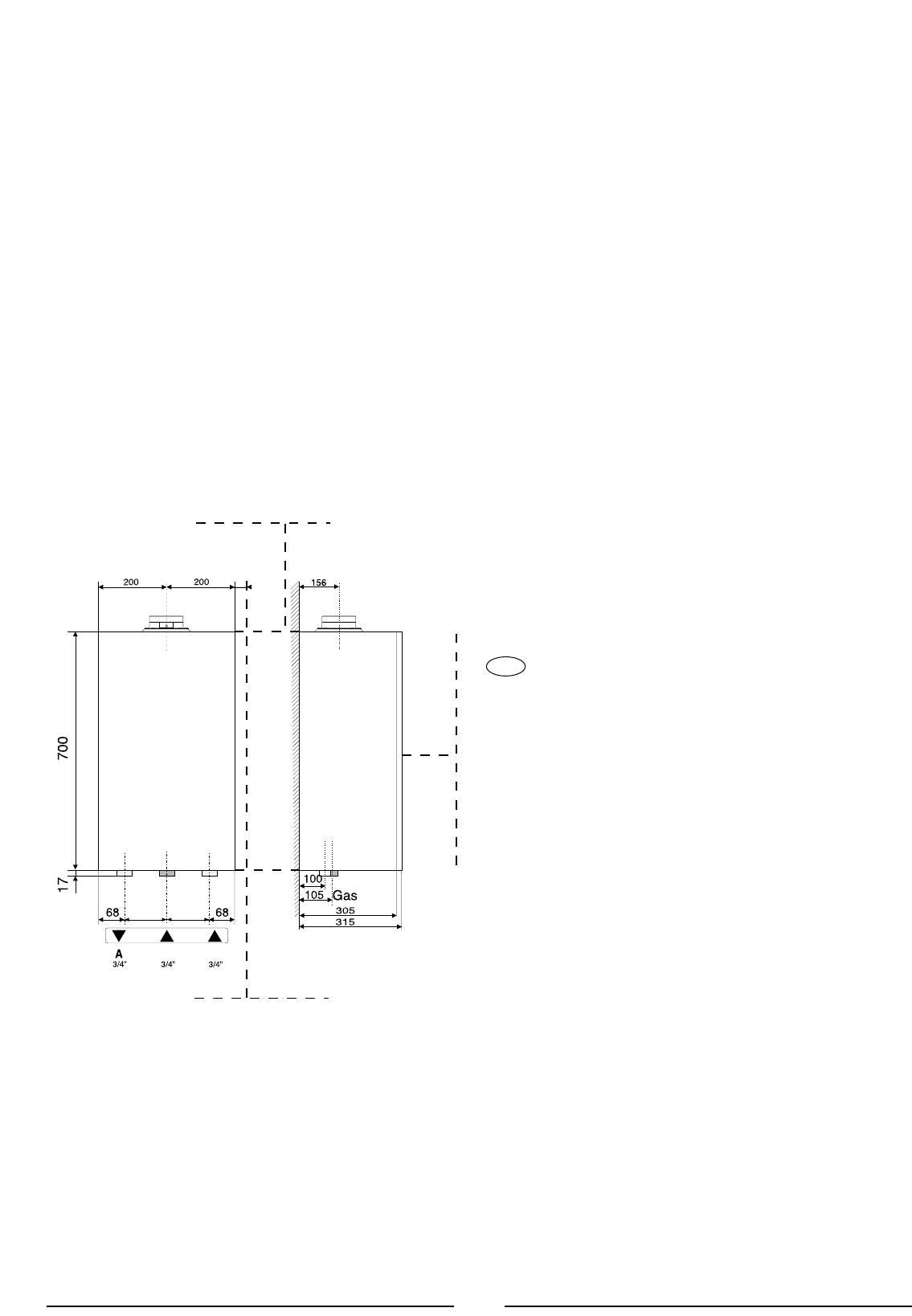
For safety purposes, have a competent person carefully check the electrical system
in the property, as the manufacturer will not be held liable for damage caused by the
failure to earth the appliance properly or by anomalies in the supply of power. Make
sure that the residential electrical system is adequate for the maximum power
absorbed by the unit, which is indicated on the rating plate. In addition, check that the
section of cabling is appropriate for the power absorbed by the boiler.
Fasten the boiler in place using the template and anchors supplied with the unit. It is
highly recommended that a spirit level be used to position the boiler so that it is
perfectly level.
For additional information, please consult the instructions contained in the
connection kit and the flue kit.
2.6 E
LECTRICAL CONNECTION
2.5 MOUNTING THE APPLIANCE
132 132
C
E
400 mm
300 mm
60 mm
450 mm
L
EGEND:
A = Central Heating Flow (3/4”)
C = Gas Inlet (3/4”)
E = Central Heating Return (3/4”)
mm = Clearances
2.3 OVERALL DIMENSIONS
In order to allow for access to the interior of the boiler for
maintenance purposes, the boiler must be installed in
compliance with the minimum clearances indicated in FIG. 2.1
2.4 CLEARANCES
FIG. 2.1
5
2.2 SITING THE APPLIANCE
The appliance may be installed in any room or indoor area, although particular
attention is drawn to the requirements of the current I.E.E. Wiring Regulations, and in
Scotland, the electrical provisions of the Building Regulations applicable in Scotland,
with respect to the installation of the appliance in a room containing a bath or
shower.
Where a room-sealed appliance is installed in a room containing a bath or
shower the appliance and any electrical switch or appliance control, utilising
mains electricity should be situated so that it cannot be touched by a person
using the bath or shower.
The location must permit adequate space for servicing and air circulation around the
appliance as indicated in paragraph 2.4.
The location must permit the provision of an adequate flue and termination.
For unusual locations special procedures may be necessary.
BS 6798-1987 gives detailed guidance on this aspect.
A compartment used to enclose the appliance must be designed specifically for this
purpose. No specific ventilation requirements are needed for the installation within a
cupboard.
This appliance is not suitable for outdoor installation.
The type C appliances (in which the combustion circuit, air vent intake and
combustion chamber are air-tight with respect to the room in which the
appliance is installed) can be installed in any type of room.
Secondary ventilation is not required with this boiler. The boiler must be installed on
a solid, permanent wall to prevent access from the rear.


















